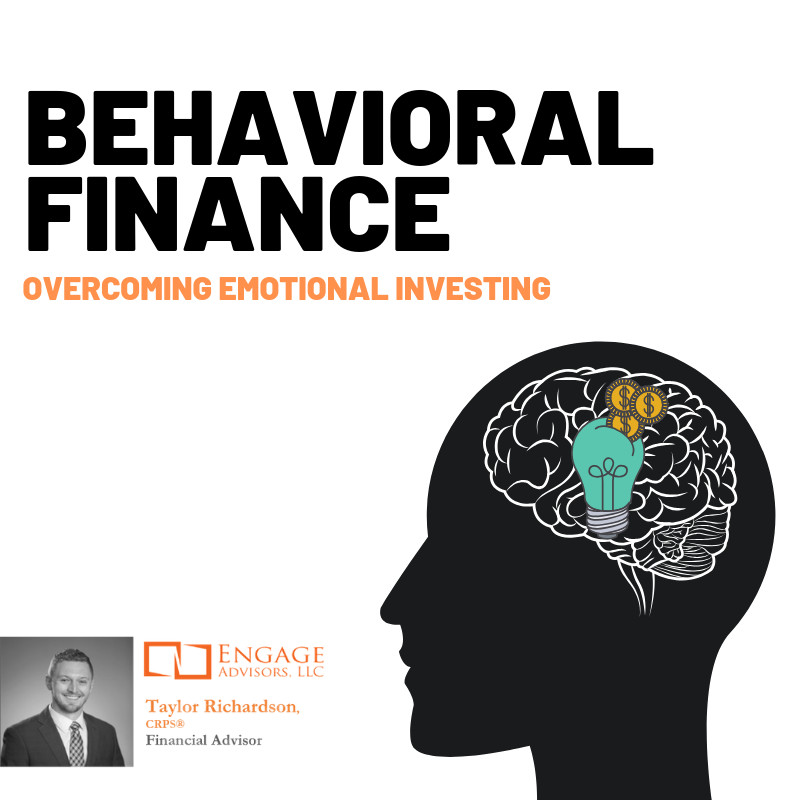Behavioral Financial Advice
When I graduated the Kansas State University Finance program, I was ready to help educate everyone I could on the way investments work, from the Efficient Market Hypothesis and Modern Portfolio Theory to statistics such as Standard Deviation, Sharpe Ratio, and Alpha. I figured my role as a financial advisor would be discussing these complex ideas with clients and helping them find the best accounts and investments to put their hard-earned dollars in. After spending tens of thousands of dollars on higher education, thousands more on financial industry licensing and even more on further specialized education, I was surprised by my earliest conclusion as a financial advisor. Less than 1% of our clients would ever want to discuss anything close to these concepts I worked so hard to ingrain into my mind.
So why did I study what I did? If clients don’t want to know all that, what do I talk about with my clients?
Please understand that it’s crucial for you to have someone in your corner who has studied and continues to study financial theories, portfolio construction, rules, regulations, and history. However, I would argue equally important is having someone in your corner who understands Behavioral Finance. This is the “why” behind investor decisions. Ask anyone who regularly deals with investors if their investors act rationally. The response will be a small laugh followed by a NO!
Why when left to our own accord as individuals do we NOT make rational decisions with our dollars or our investments? It is a scientific fact that individuals will do irrational things to avoid loss. But why?
Fear is a learned behavior, which is called fear conditioning. We learn fear from three places: a personal event, the experiences of others close to us, and social observation or the “herd” mentality. Statistically speaking the fear of loss is at least 2 times greater than the joy of gain. So how does this lead to us making bad decisions with our dollars? When the market is falling, as individual investors our gut instinct is to sell investments and go to cash to “stop the bleeding”. Our brain is screaming at us that it has seen this before… Here comes another recession! It’s the dot.com bubble! It’s 2008! I lost money then, I’m going to lose money now! Selling after the fact was a horrible decision then and it will be time and time again. When we leave the market after a drop, we are locking in the loss, and missing the opportunity to ride the market back up.
A funny thing happens on the other end of the spectrum. When the market or an investment goes up, we begin to get the “herd” mentality urging us back in. We think that if they are making money there, then so can I. Again, this mentality is often wrong.
Enter professional guidance. What do we help our clients do? My mentor and partner, Ryan Forster, always said to me “Our business often feels like we manage more emotions then we do money”. I am positive that he did not learn this through his education at the University of Kansas (because they are a sub-par business school compared to Kansas State 
If you want to learn more about Behavioral Finance and how to overcome so many of our emotional biases, please call Taylor Richardson at 913.681.9155 or email at taylor@engageadvisors.com
Engage Advisors, LLC is a Registered Investment Adviser. This platform is solely for informational purposes. Advisory services are only offered to clients or prospective clients where Engage Advisors, LLC and its representatives are properly licensed or exempt from licensure. Past performance is no guarantee of future returns. Investing involves risk and possible loss of principal capital. No advice may be rendered by Engage Advisors, LLC unless a client service agreement is in place.

